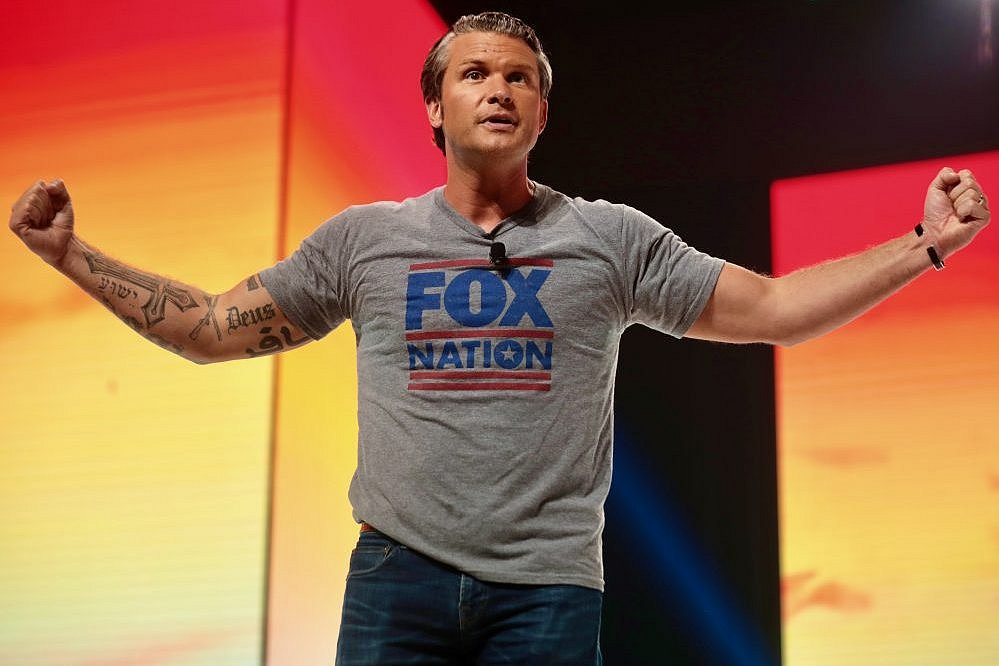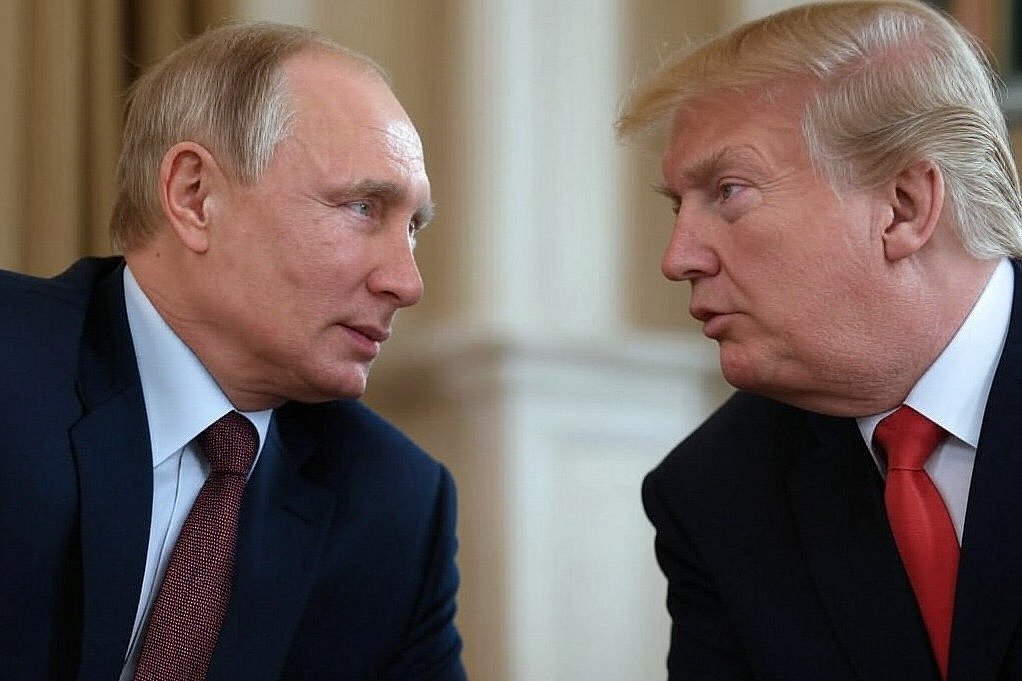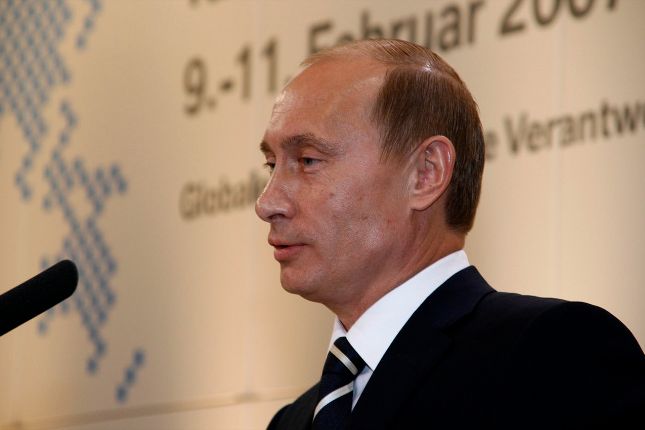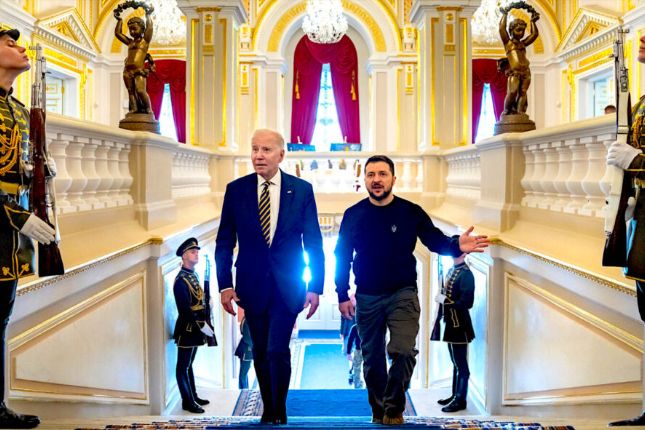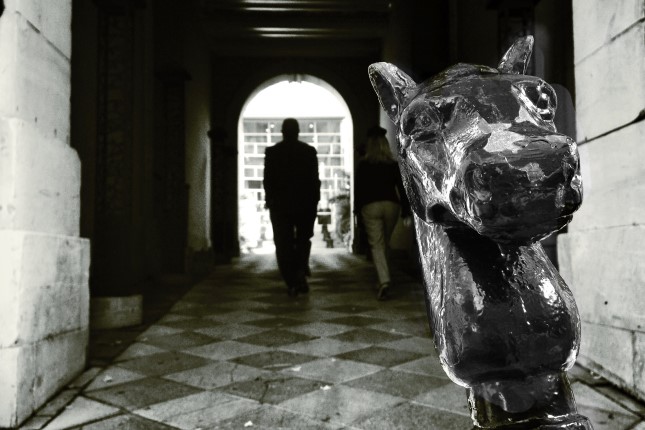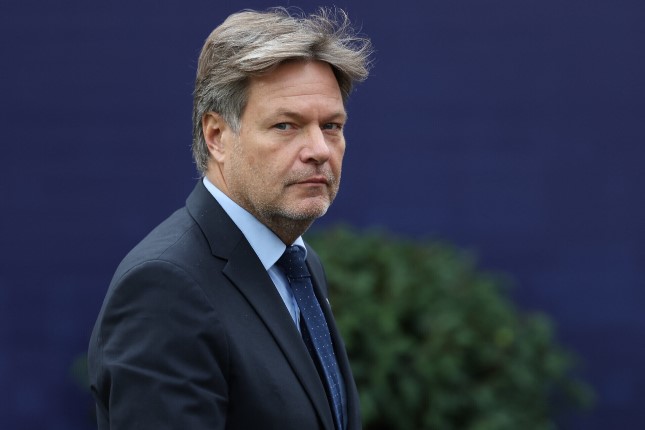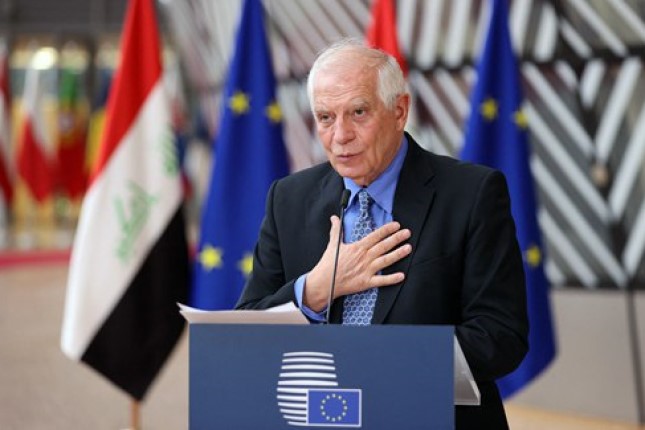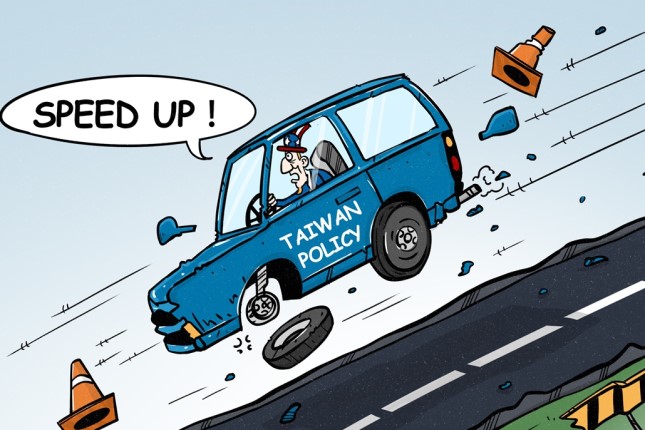It should be evident by now to anyone paying even casual attention that exerting full-spectrum control over American media is among the Trump regime’s most perniciously obsessive projects.
Of all the extra-constitutional messes this vulgar ignoramus is making, I count his assaults on media his gravest attempt to destroy what remains of American democracy and what little chance there may be to restore it.
There are all sorts of cases in point. President Trump has a citizen’s right to file lawsuits against various media — ABC News, The New York Times, The Wall Street Journal, Paramount Global (the parent of CBS News) — but to call these anything other than an antidemocratic assertion of executive power is out of the question.
Lately there are the threats of Brendan Carr, the mad-dog chairman of the Federal Communications Commission, to take licenses away from broadcasters whose reportage and commentary are not to Trump’s liking.
“We can do this the easy way or the hard way,” saith Carr when he forced ABC to take Jimmy Kimmel off the air (temporarily, it turned out) for a few utterly harmless remarks the late-night host made after the assassination of Charlie Kirk, the influential conservative.
What a ridiculous comment from a ridiculous man, what a capricious display of authoritarian power. This is a war on media the Trump regime intends to wage on many fronts, to finish this pencil-sketch of the landscape.
What is to my mind the most portentous attack yet on media of all sorts and what little independence remains among the mainstream variety came a couple of weeks ago, when the Defense Department announced severe new restrictions on journalists covering the Pentagon.
To put the case simply, these rules will bar correspondents covering the American military from covering the American military.
My mind goes first to Jefferson’s famous remark in 1787, while serving as the young United States’ minister in Paris.
“Were it left to me to decide whether we should have a government without newspapers or newspapers without a government,” he wrote to Edward Carrington, a prominent Virginian and a friend, “I should not hesitate a moment to prefer the latter.”
Taking the Pentagon’s new restrictions on their own terms and also as a harbinger, Trump and Pete Hegseth, his buffoonish defense secretary, appear intent on delivering Americans to that condition Jefferson warned against 238 years ago.
Turning his question another way, I remind readers of W.E.B. DuBois, Mark Twain, Samuel Gompers, the James brothers (William and Henry), and other critics of the American imperium as it emerged at the end of the 19th century. There will be empire abroad or democracy at home, they asserted with a sort of desperate alarm, but Americans will not have both.
Considered in this context, Hegseth, with Trump’s evident approval, has just nodded in favor of this argument. Operating the late-phase imperium, Hegseth effectively advises Americans, requires the sequestration of power from public scrutiny.
The document announcing the Defense Department’s new restrictions on correspondents covering the American military runs to 17 pages; a covering letter signed by Sean Parnell, the Pentagon spokesman, describes it as “implementing the Secretary of War [sic] memorandum, ‘Updated Physical Control Measures for Press/Media Access Within the Pentagon,’ dated May 23, 2025.”
Note the date. By mid–May Pentagon correspondents had reported that Hegseth was using unsecured internet lines to conduct classified business and had brought his wife, brother, and personal attorney into a chat room where a top-secret aerial attack on Yemen was under discussion. A few days after that it was reported that he had invited Elon Musk to a briefing on potential war plans against China.
This guy had a lot of stupidity and incompetence to cover up. And the restrictions Hegseth authorized in May, detailed in the memorandum dated Sept. 18 and due to come into effect over the next few days, reek of the sort of revenge — against Democrats, against the universities, against the courts, against the media — that seems to rule within the Trump regime.
How damaging to our tattered republic, you have to conclude, are the petty vendettas of these thankfully passing people.
These new restrictions are beyond Draconian. Journalists covering the Pentagon are to be required to pledge not to report anything, anything at all, that has not been explicitly authorized by a department official. They will not be allowed even to gather information without such authorization. Access even to unclassified information will be limited to occasions “when there is a lawful government purpose for doing so.”
Reporters assigned to cover the Defense Department will now have to take pledges to get in the Pentagon’s front door? Just how far are these people going to go? This reminds me of the loyalty oaths required of federal employees during the McCarthyist 1950s.
Roughly 90 journalists cover the Pentagon at any given time. They will henceforth be restricted even from walking most of the building’s halls without an escort. “Failure to abide by these rules,” the memorandum warns, “may result in suspension or revocation of your building pass and loss of access.”
This is pretty close to Soviet, in my estimation.
“Journalists covering the Pentagon are to be required to pledge not to report anything, anything at all, that has not been explicitly authorized by a department official…. Access even to unclassified information will be limited…”
Hegseth took to social media the day these restrictions were issued to journalists and, so, reported in their media. “The ‘press’ does not run the Pentagon,” he declared to all, “the people do.”
Tell me if this is not altogether Soviet.
It would be difficult to overstate the gravity of these measures. Taken to their extreme, and to go by the hyper-officious phrasing of the Sept. 18 memorandum the extreme is what Hegseth’s Pentagon has in mind, once these regulations go live the conduct of the imperium will no longer be visible to the public.
The imposition of total control of information — and so of all “narratives” — and the concealment of all conduct: These are the all-but-stated objectives. We are looking at unlimited prerogative and the strictest enforcement of secrecy, to describe this new regime another way. At this early moment I find it hard to imagine the extent of the lawlessness this may turn out to license.
I start to think the Trump II regime’s relations with media exceed the corruptions of the Cold War decades, and this is going some. But no president then was as brutishly ignorant and as indifferent to the Constitution as Trump. The imperium was on the ascendant during those first post–1945 decades; now it is bankrupt (in lots of ways) and obviously on the wane. The game is bound to get rougher as strength gives way to weakness.
But let me pose a question, disturbed as I am by Pete Hegseth’s latest display of authoritarianism mixed with ineptitude. In promulgating these severe new restrictions on those assigned to cover the national security state, has the Trump regime merely codified practices that have long been observed but until now left unwritten?
Doing bluntly and openly what previous presidential regimes have done surreptitiously is (part of) what makes Donald Trump dangerous, but it is also, if you see what I mean, his virtue: The Trumpster puts it all out in the open. Think for a moment about the language of the Sept. 18 memorandum, as quoted above: Observe the rules or suffer “loss of access.”
Every journalist who has ever had lunch in Washington understands what is meant by “the access game” and how it works. You produce work that pleases the sources upon whom you rely or they stop speaking to you and you are shut out. Getting shut out is not considered useful among one’s editors. Ditto the correspondent who has lost his sources.
Writing the access game into enforceable regulations is not to be dismissed as anything short of dangerous to the remnants of American democracy. But there is nothing new about the game, and very, very few correspondents in Washington prove able to resist playing it.
There has been lots of coverage of the Hegseth rules since the memorandum was distributed in the Pentagon press room. But I have heard no formal protest from publishers and executive editors, no rejections, no refusals to accept these preposterous limitations, no threats to boycott.
My guess, informed by long years “laboring in the vineyards,” as one of my editors used to put it: Mainstream media will accept these rules and play by them, so making themselves participants in this latest corruption of the press and broadcasters as an independent pole of power. This is what makes them mainstream, after all.
Remember during the First Gulf War, when correspondents had to “embed” with military units, so giving the army control over what they saw and thus what they reported? There were few voices of objection raised — an appalling, gutless dereliction of the press’s responsibilities.
“My guess … Mainstream media will accept these rules and play by them, so making themselves participants in this latest corruption of the press.”
I hope I am wrong, but it looks to be the same thing again in my read. Those covering the Pentagon will henceforth be embedded in the America military’s command center, simple as that.
At the horizon the question comes down to where journalists stand in relation to the power they are supposed to report upon and, on the other hand, to their readers and viewers. This has been a matter of debate since Walter Lippmann and John Dewey faced off on it a century ago.
I wrote of “the Lippmann–Dewey debates,” which were not actually debates, at length in Journalists and Their Shadows, which came out in late 2023, so here I will be brief.
Lippmann, high priest of the cult of the expert, saw journalists as appendages of sequestered elites, and they were to serve as messengers conveying all decisions downward. Dewey argued that policy and other such matters must be subject to public deliberation; media’s task was to inform the public of all available perspectives such that sound judgments could be made.
Lippmann argued for less democracy, Dewey for more: This was the gist of the debates in which the two engaged by way of their books and their reviews of each other’s.
The Cold War turned journalists, with a few honorable exceptions, into a herd of cowardly Lippmannites. After an attenuated step in the other direction — in the 1960s and 1970s, approximately — they have served as Lippmannites through and through since the attacks of September 2001.
Pete Hegseth has decreed a radical departure in professional practice for journalists covering the national security state. True and highly condemnable.
Pete Hegseth has codified long-established practices and a longstanding relationship between the press and power. True and highly condemnable.
Source: Consortium News.
